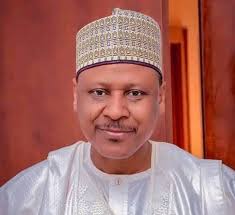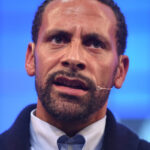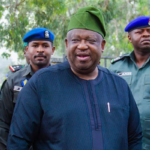The Need for Effectively Communicating Government Programme and Successes

The humid air of Abuja hung heavy, thick with the scent of dust and the promise of the coming rains. Inside the brightly lit conference hall, Dr. Adekunle Oluwafemi, Special Advisor to the President on Strategic Communications, adjusted his spectacles, his gaze sweeping across the attentive faces of permanent secretaries, directors of information, and communication officers from various ministries. The weight of the Renewed Hope agenda, the ambitious blueprint for Nigeria’s future, rested partly on his shoulders.
“Distinguished colleagues,” Dr. Oluwafemi began, his voice resonating with conviction, “we stand at a pivotal juncture. The Renewed Hope agenda, with its transformative goals across economic growth, security, and social investment, is not merely a document; it is a covenant with the Nigerian people. However, a brilliant strategy, meticulously crafted policies, remain just words on paper if they do not effectively reach the hearts and minds of our citizens.”
He paused, allowing his words to sink in. The room was silent, the only sound the gentle hum of the air conditioning. He continued, his tone emphasizing the critical role of their collective effort. “This is where strategic communication becomes not just important, but absolutely essential. It is the lifeblood that will carry the promise of Renewed Hope to every corner of this nation, ensuring understanding, fostering trust, and ultimately, securing the buy-in necessary for successful implementation.”
Dr. Oluwafemi elaborated on the multi-faceted nature of this strategic communication endeavor. It wasn’t simply about issuing press releases or holding occasional town hall meetings. It demanded a comprehensive, coordinated, and consistent approach that considered the diverse demographics, languages, and levels of access to information across Nigeria.
“We must move beyond a one-size-fits-all approach,” he stressed, gesturing with his hands. “Our communication strategies must be tailored to resonate with different segments of our population. For the bustling markets of Lagos, the message might need to be conveyed through engaging radio dramas and visually compelling infographics in local languages. For the agrarian communities in the North, community leaders and traditional channels of communication will be paramount. And for our tech-savvy youth, a strong digital presence, utilizing social media and online platforms, is non-negotiable.”
He highlighted the need for clarity and simplicity in messaging. Complex policy jargon needed to be translated into easily understandable language, devoid of ambiguity. The “why” behind each policy needed to be clearly articulated, connecting it directly to the everyday lives and aspirations of the Nigerian people.
“Consider the National Social Investment Programme,” Dr. Oluwafemi illustrated. “While the policy aims to alleviate poverty and empower vulnerable populations, simply announcing budget allocations will not suffice. We need to tell the stories of beneficiaries, showcase the tangible impact on their lives, and explain the mechanisms through which others can access these opportunities. This human-centered approach will build empathy and understanding, fostering a sense of ownership in the Renewed Hope agenda.”
Furthermore, he emphasized the importance of proactive communication. Waiting for misinformation to spread before reacting was no longer an option. A robust communication strategy involved anticipating potential areas of confusion or resistance and proactively addressing them with accurate and timely information. This required a strong intelligence gathering mechanism, monitoring public discourse across various platforms, and a rapid response system to counter any narratives that could undermine the agenda.
Dr. Oluwafemi also underscored the critical role of collaboration. Effective strategic communication was not the sole responsibility of information officers. It required seamless coordination between policy formulators, implementers, and communication experts. Each ministry and agency needed to integrate communication considerations into their planning and execution processes from the outset.
“We must break down the silos,” he urged. “Policy teams need to work hand-in-hand with communication teams to ensure that the intended message is clear and consistent throughout the policy lifecycle. This collaborative spirit will ensure that our communication efforts are not just reactive but are strategically aligned with the overall objectives of the Renewed Hope agenda.”
He also addressed the importance of feedback mechanisms. Communication was not a one-way street. Establishing channels for citizens to voice their concerns, ask questions, and provide feedback was crucial for building trust and ensuring that the policies were truly serving the needs of the people. This feedback loop would also provide valuable insights for refining communication strategies and even informing policy adjustments.
“Town hall meetings, online forums, dedicated call centers – these are not just symbolic gestures,” Dr. Oluwafemi asserted. “They are vital avenues for listening to the pulse of the nation. By actively engaging with our citizens, we demonstrate that their voices matter and that the Renewed Hope agenda is truly for them.”
The challenge, Dr. Oluwafemi acknowledged, was significant. Nigeria was a nation of immense diversity, with a complex media landscape and a vibrant public sphere. Navigating this terrain required skill, sensitivity, and unwavering commitment. However, he expressed his confidence in the collective capacity of the communication professionals present.
“You are the gatekeepers of information, the narrators of our national story,” he said, his voice filled with respect. “Your expertise and dedication are crucial in ensuring that the Renewed Hope agenda is not just heard, but understood, embraced, and ultimately, realized. The efficient delivery of these policies to the Nigerian people hinges on your ability to communicate effectively, to build bridges of understanding, and to foster a shared vision for a brighter future.”
As he concluded his address, a sense of renewed purpose filled the conference hall. The task ahead was daunting, but the importance of their role in shaping the narrative and ensuring the success of the Renewed Hope agenda was undeniable. The journey towards a better Nigeria had begun, and strategic communication was the vital compass guiding its progress, ensuring that the aspirations of the government resonated with the hopes and dreams of every Nigerian citizen. The work was just beginning, and the dedicated professionals in that room were ready to embrace the challenge.








